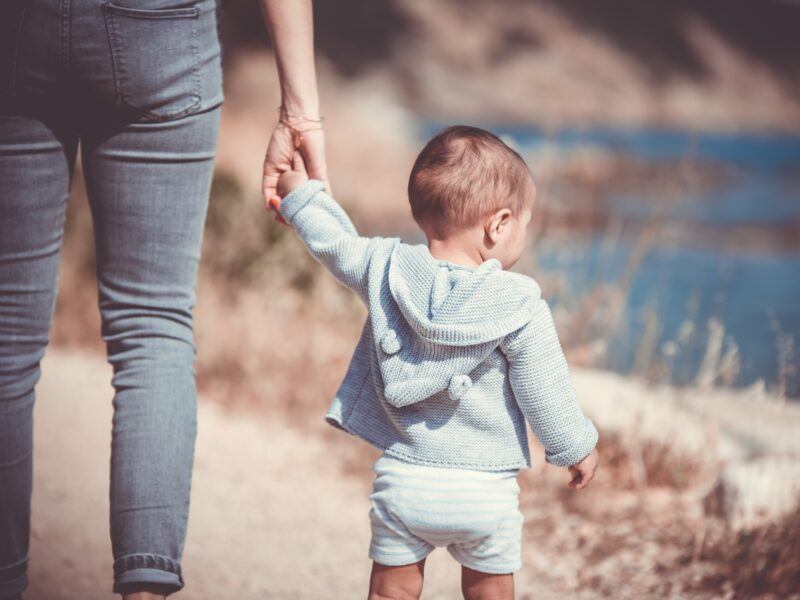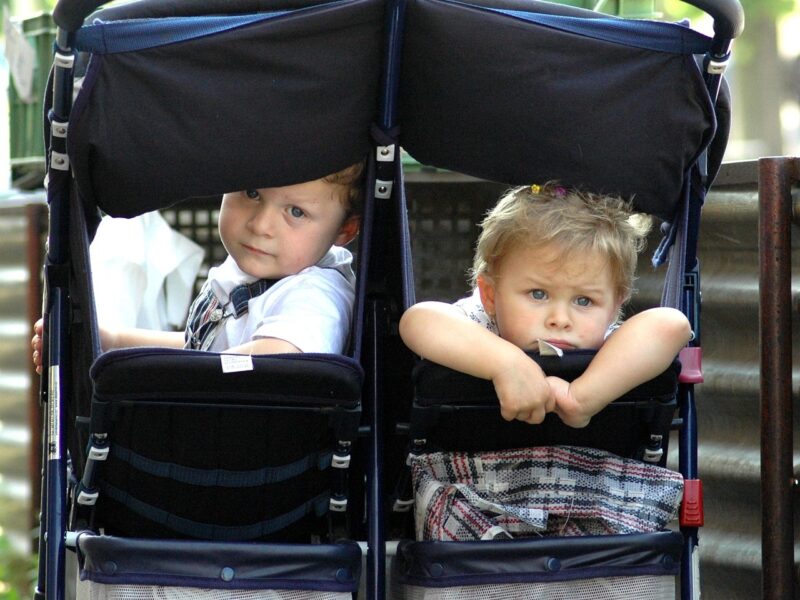
Almost from the first moment we hold our newborns, we begin to look forward to their first words and first steps. Milestones in child development are lovingly recorded in a baby book and proud parents often enjoy doing a little bragging about the amazing things that their child can do.
Babies undergo enormous changes during the first few years of life and make substantial progress toward their future independence.
Walking – What to Expect:
Some babies seem anxious to move about very young, while others are content to be carried from here to there. From rolling over to creeping to crawling to finally taking those first steps, each baby makes progress in their own time. There are however, some averages:
- By about six months, many babies enjoy rocking back and forth on their hands and knees, which helps them to strengthen their muscles and get ready for crawling. Some may even be creeping a bit, but sometimes they go backwards rather than forward!
- At nine months, many babies can move about the room in the direction of their choosing. Some will still be creeping with their belly on the floor; others will be crawling, while others may prefer rolling or scooting on their bums to get where they want to go.
- Although some babies will be walking independently by the time they celebrate their first birthday, many others will need to support themselves by holding onto furniture or the hands of a caregiver as they move about. Many babies of this age will stand unassisted, but are not quite ready to take steps.
By 15-16 months, most babies are walking on their own. Falling down is common, but most babies aren’t too troubled by this – they simply get back up and keep going!
Talking – What to Expect
Babies begin to verbally communicate their feelings to us from the very start. Infants cry when they are hungry, tired, scared, or need changing. When they are content, they may coo and reward us with a smile.
Before long, they are babbling and “talking” to familiar caregivers. Babies develop language skills at different ages and there is a wide range of “normal.” That being said, here’s a quick look at what you might expect:
- By three months, many babies begin to “converse” with their parents or caregivers, listening as someone speaks to them and then responding with some baby babble, mostly vowel sounds. The baby often seems excited by these exchanges, moving arms and legs in delight.
- At six months, many babies are adding more consonants to their “words” and may have a few favourite sounds that they repeat. Babies of this age frequently enjoy the sound of their voices and may chatter quite a bit.
- By about nine months, baby will be able to understand a number of words that are said to them, and may even begin to imitate simple words such as dada or mama.
- At the first year mark, some babies will have a small vocabulary of words. More often, however, they will respond to your attempts at conversation with babble that imitates sentence structure.
- By 18 months, children are able to follow simple commands, which indicates that they have a growing understanding of language. Some 18 month olds will be able to respond with clear words while others still converse in a manner that is hard to understand. By this age, although strangers may have difficulty in understanding the child’s words, close caregivers often recognize a number of the words used.
- By their second birthday, toddlers often begin to form short 2-3 word sentences and can tell you their names. They may have mastered a vocabulary of up to 300 single words.
When to Seek Help
While it can be hard not to compare one child to another, this is never a good idea. Invariably, each child will be a bit ahead of the learning curve is some areas but may take longer than their peers in others.
As long as your baby continues to make progress, things are probably going fine. If your child displays significant delays, it can’t hurt to talk to your pediatrician, but in most cases, they’ll be up and about and gabbing up a storm in no time at all.
Experienced parents will tell you that you spend the first two years of your child’s life coaxing them to walk and talk and the next 16 wishing sometimes that they would sit down and be quiet!

